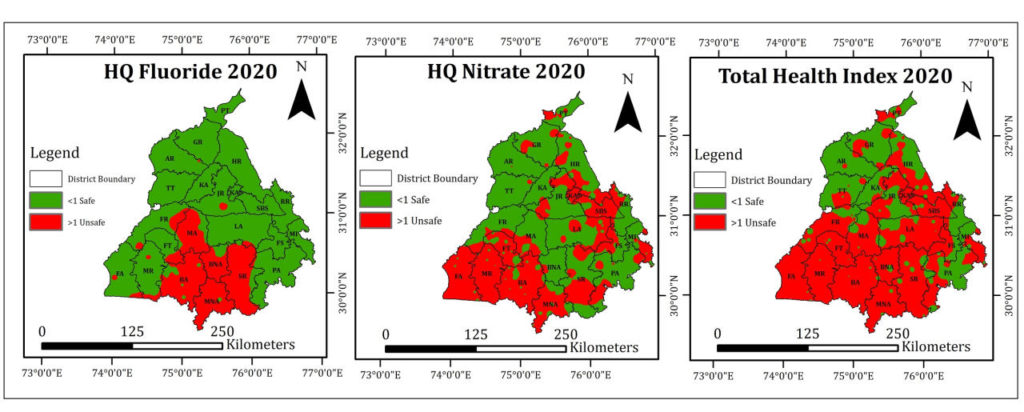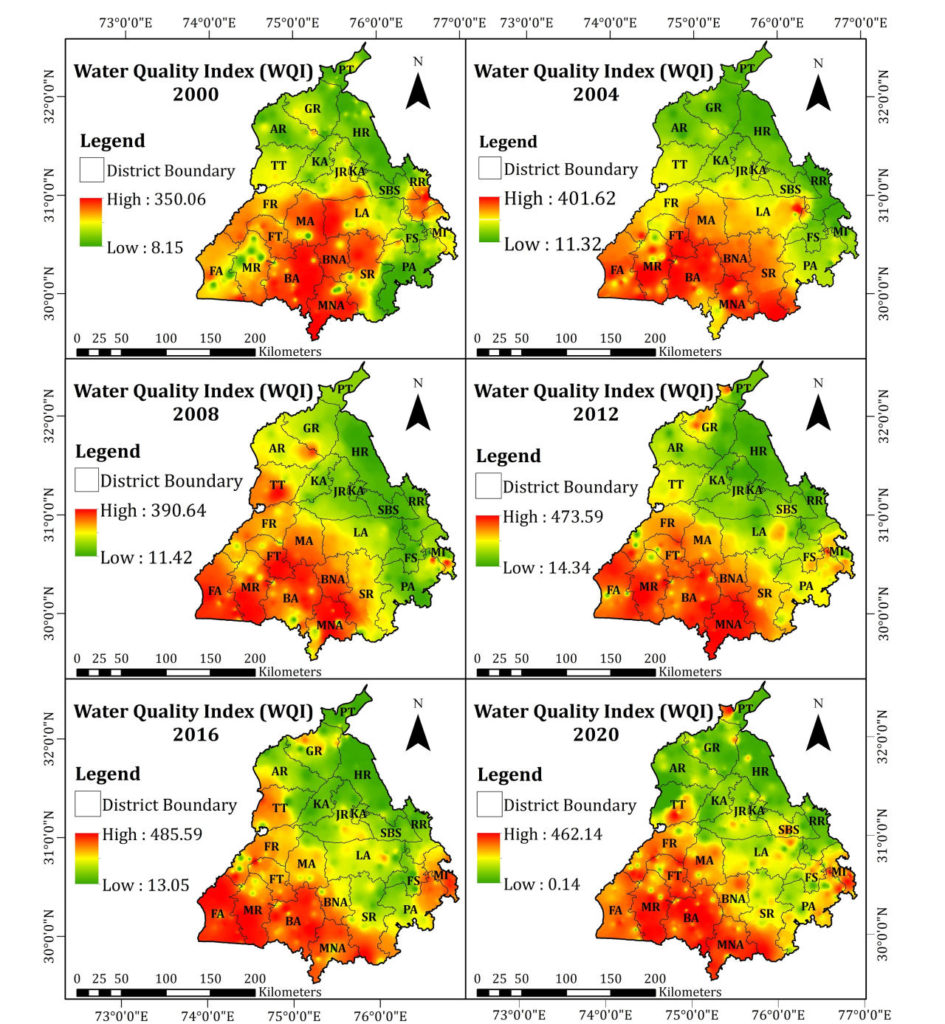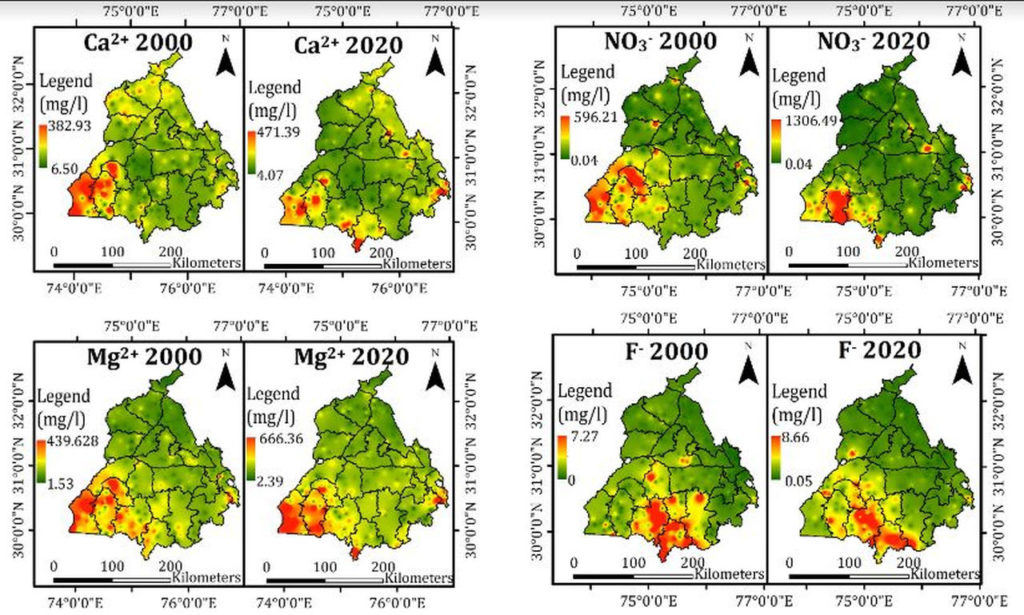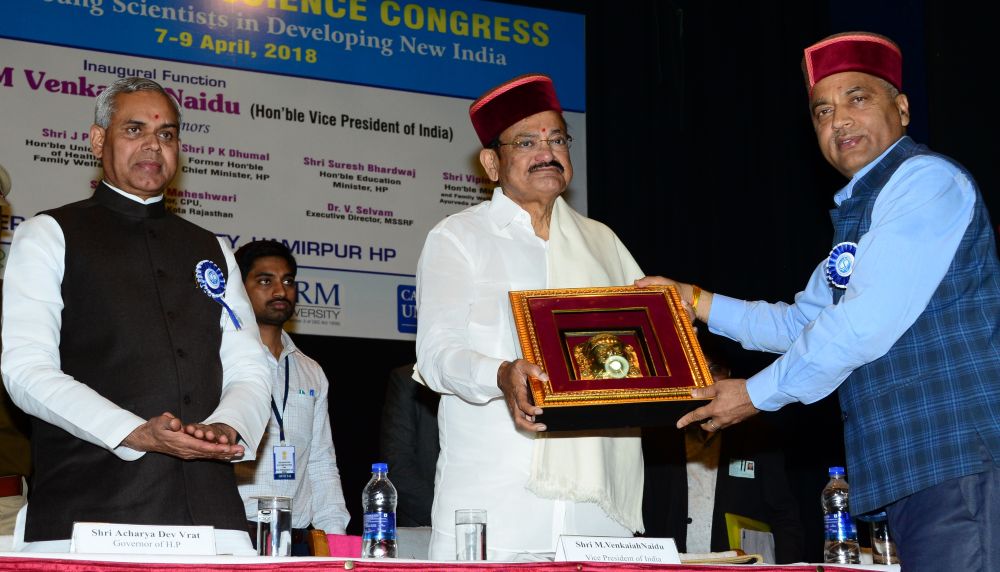Punjab, once celebrated as the “bread bowl of India” due to its pivotal role in the Green Revolution, is now grappling with a silent crisis beneath its fertile soil. A recent groundbreaking study conducted by researchers at the Indian Institute of Technology Mandi (IIT Mandi) has unveiled a grim reality: the alarming deterioration of groundwater quality in the state.
The Green Revolution, which began in the mid-20th century, transformed Punjab into a thriving agricultural hub, making it a significant contributor to India’s wheat production. However, the agricultural practices that came with this transformation have had severe consequences for the region’s groundwater.
Dr. Dericks Praise Shukla, an Associate Professor at the School of Civil and Environmental Engineering at IIT Mandi, led the study. He and his team aimed to track changes in drinking water quality in Punjab over two decades, from 2000 to 2020. Their research also sought to assess the health hazards linked to nitrate and fluoride contamination and pinpoint areas with deteriorating groundwater quality.
The findings of this comprehensive study paint a troubling picture. Punjab’s overreliance on groundwater for irrigation, particularly during monsoon-deficient years, has led to a significant drop in groundwater levels. To compensate, local farmers and authorities have been forced to tap into deeper geological strata, some of which are rich in heavy metals and even radioactive elements, posing serious health risks.
Shukla explains, “We aimed to assess how groundwater quality for drinking purposes changed at different places from 2000 to 2020. It also sought to examine ten-year trends in health hazards associated with contaminants like nitrate and fluoride, along with identifying regions with notably subpar groundwater quality.”
The research, published in the journal “Environmental Science and Pollution Research,” involved extensive data collection, including measurements of pH, electric conductivity, and various ions at over 315 sites across Punjab. The results are concerning, revealing a disturbing trend of declining water quality, particularly in the southwestern region of Punjab. This has had adverse effects on the health of the region’s residents.

In stark contrast, the north-eastern regions of Punjab, nourished by the pristine waters of the Himalayan rivers, exhibited comparatively better water quality. The implications of this study are far-reaching. It serves as a critical resource for policymakers, highlighting the urgent need for mitigation measures to combat groundwater pollution.
Furthermore, the study aims to create awareness among residents about the areas with unsafe groundwater for drinking. It is expected that these insights will catalyze efforts by the state government to investigate groundwater quality for both drinking and irrigation purposes.
As Punjab confronts the sobering reality of its deteriorating groundwater, the IIT Mandi study has sounded the alarm and illuminated a path toward a more sustainable and healthier future for the state’s residents. The question now is whether swift action will be taken to safeguard this invaluable resource and protect the health of the population.















